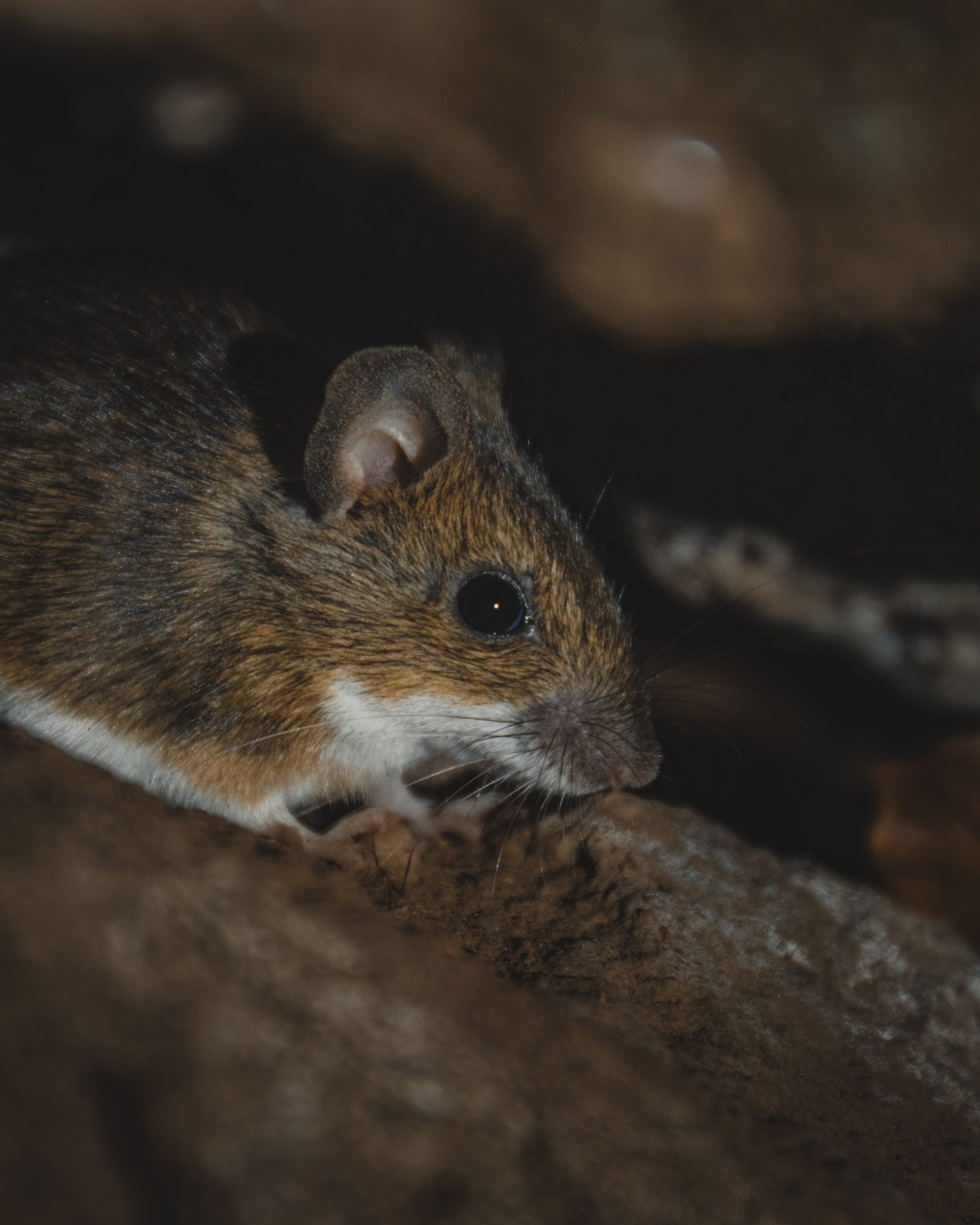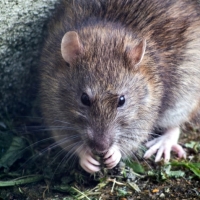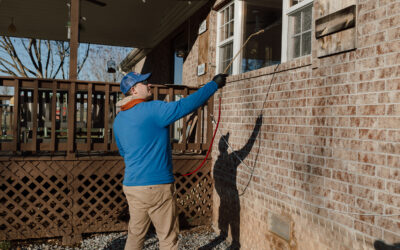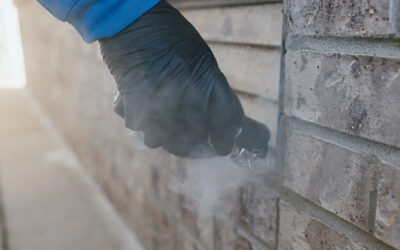
Signs of Mice Infestation
Discovering signs of mice in your home can be unsettling, but early detection is the key to effective pest management. If you’ve got a hunch that there are some unwanted guests in your home, we’ve put together some helpful tips for identifying a mouse infestation, understanding the health risks that mice can pose to humans, and learning some preventive measures to keep them at bay.
Common Signs of Mice Infestations
Mice are good at hiding from people, but their presence often leaves behind telltale signs that are easy to spot once you know what you’re looking for.
Their droppings are tiny and pellet-shaped, about the size of a grain of rice. The presence of these droppings clearly indicates the presence of mice. They’re typically dark brown or black, and will most likely be found in areas where mice frequent, like behind furniture, inside cabinets, or near food sources.
Mice have to constantly gnaw on objects to wear down their front teeth, which are continually growing throughout their lives. If you spot teeth marks on wooden furniture, baseboards, electrical wires, or food packaging, you’re probably dealing with a mouse infestation.
In order to make their nests, mice use materials like paper, fabric, or insulation. If you spot piles of shredded material in hidden areas of your home like the attic, basement, or crawl spaces, this is a good indication of a mouse infestation.
Finally, mice have a distinctive musky odor that has been described as ammonia-like. If you detect an unexplained, unpleasant smell– especially in enclosed areas within your home– it may be a sign of mice.
Health Risks Associated with Mice Infestations
While mice may seem small and harmless (or even cute!), they can pose significant health risks to humans. For example, they carry and can spread various diseases through their droppings, urine, or saliva. These diseases can include salmonellosis, which causes food poisoning; hantavirus, which is a respiratory illness; and leptospirosis, which can affect the kidneys and liver.
Mice dander, fur, and dried urine can trigger allergic reactions in some individuals, causing uncomfortable symptoms like sneezing, coughing, and itchy eyes.

Preventive Measures and Solutions
The good news is that mice can be prevented and controlled with some strategy and planning.
They’re capable of squeezing through tiny openings, so be sure to inspect your home for cracks around pipes, gaps around doors or windows, and openings around vents or utility lines. Seal these openings with caulk or steel wool.
Mice are constantly foraging for food. Store your food in airtight, sealed containers, clean up any crumbs or spills promptly, and don’t leave pet food bowls unattended overnight.
Since mice are attracted to dirty environments, clean your kitchen, dispose of garbage properly, and address any moisture issues like leaky pipes or clogged drains.
While snap traps and bait stations can be effective in catching mice, be very cautious if you have pets or children, and always place traps according to the manufacturer’s instructions.
Leave it to the Professionals
If you suspect a severe infestation, or DIY methods are unsuccessful, we’d highly recommend contacting a pest control company. We have the expertise and tools to safely and effectively eliminate mouse infestations and prevent future issues.
Remember, early detection is key! If you suspect a mouse infestation, don’t hesitate to address the issue promptly to keep your home and health safe. Reach out to West for a free consultation today!
Call your local West Termite location or fill out the form
on our contact page to schedule your inspection today!
More posts from West Termite, Pest & Lawn
Pestproofing Entry Points Before Spring
As spring approaches in Arkansas, homeowners face an increased risk of pests seeking warmth, food, and shelter. Many infestations begin with small, unnoticed entry points that allow insects, rodents, and other pests to move indoors. Pestproofing your home before the...
Early Spring Termite Activity in Arkansas
As Arkansas begins to warm in early spring, homeowners may assume termites remain dormant until the summer months. In reality, spring termite colonies can become active much earlier, especially as soil temperatures rise and moisture levels increase. Subterranean and...
Preparing Your Home for Early Spring Pests
As winter fades and temperatures rise in Arkansas, homes become vulnerable to a fresh wave of early spring pests. Early spring is a critical time to take preventive action because insects, rodents, and other pests start emerging from dormancy, seeking food, warmth,...



